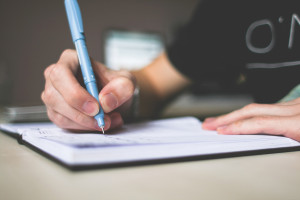 A very underrated aspect of success is social skills. It’s not talked about much, because technical skills and other elements attract the most attention. But, if you can’t communicate well, then it doesn’t matter how smart or hard working you are.
A very underrated aspect of success is social skills. It’s not talked about much, because technical skills and other elements attract the most attention. But, if you can’t communicate well, then it doesn’t matter how smart or hard working you are.
I’m not claiming to be the most charismatic guy. I sometimes say weird things, tell a joke where no one laughs, and make people uncomfortable by being too forward. But, I’ve been reading about the power of social skills, and knew I needed to share.
Why To Improve Your Social Skills
When you have excellent social skills, you have power and control. You can talk to anyone at a party. You can create a positive impression on your teachers (maybe enough to raise that borderline B+ into an A-). A tough interview can turn into a friendly conversation with a job offer. And, of course, social confidence and being able to effectively communicate will boost your dating options.
What’s even better, strong social skills will definitely pay dividends after school. Unless there is an urgent or problematic situation, people do business with the people they like.
How do you ask for a raise and receive it? By strongly communicating your production and having a good relationship with your boss. Two areas where people with advanced social skills excel.
If through your conversations, you can get people to think, “Wow, there’s something about that guy or girl that I really like,” then you will create so many opportunities for yourself. Those around you might not know what it is exactly that they like, but it doesn’t matter because they will remember the positive effect you had on them.
So, did you know that you can practice your social skills? Practicing your social skills is a real thing, and it’s just as important in social settings as it is in professional. It’s a myth that social skills are only natural and you either have them or you don’t.
People love to talk, be heard, and be understood. By practicing, you can become that person that always gives a positive vibe in conversation. Strong social skills will create a wealth of opportunities that average people don’t receive.
How To Practice Social Skills
Some of these tips may be basic, but it’s surprising how many times these skills can be forgotten during conversation. And most of these are easy when you’re comfortable and talking to your friends. Communication decreases when you’re nervous, uncomfortable, and talking with a stranger. The goal is to effectively communicate with anyone at any time, no matter the circumstance.
1) Body language
Body language is crucial. No one is going to approach the guy with his arms crossed looking down. The girl at a social event who is always on her phone is also not inviting to conversation.
Instead, you want to have an open stance, with your feet facing the person you’re talking to. Make eye contact and nod your head during conversation—but not 100% of the time or you’ll come off as a creepy bobble head.
2) Conversation
If you don’t actively listen, then you’re going to struggle communicating. You won’t really understand the other person, and you will have no basis to respond. Just to be safe, you can even say, “So you’re basically saying…”
If the other person says yes, then you know that you’ve listened. Now it’s your job to drive the conversation. Respond with your opinion, and then ask an interesting follow-up question that requires more than a yes or no answer.
In most situations, a perfect balance is 50% talking and 50% listening. This way you aren’t overly quiet, but you’re also not rambling.
Leaving conversations can be tricky to navigate. Everyone needs to exit at some point for some reason—busy, maybe the other person is awkward, or you have other people you need to talk to—but it’s often difficult without seeming rude. So how do you properly leave?
Say something like, “It was awesome meeting you. I’d love to talk in the future. Have a good day/(night).” This gives a positive, friendly impression, while also exiting the conversation.
3) Analysis
After an event is over, the best way to improve is to analyze how you felt and how you think the other person felt after your conversation. If you asked a question and the other person responded strangely, it most likely means your wording or question wasn’t helpful. If you were asked a question and responded with a short answer, think of how you could expand that in an intriguing in the future. (People love hearing a good story.) Next conversation, keep what worked, and eliminate what didn’t. Then you’ll be a successful communicator over time.


